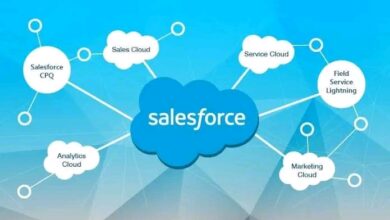18 Skills All Programmers Need to Have

In the digital age, computer programmers play a vital role in developing software and applications that power our modern world.
Whether you’re a seasoned programmer or aspiring to enter the field, there are certain essential skills you should possess to thrive in this ever-evolving industry.
In this article will delve into the 18 key skills that all programmers need to have for success.
What does a computer programmer do?
Computer programmers are professionals who write, test, and maintain the code that makes software applications run smoothly.
They use programming languages to instruct computers to perform specific tasks and solve complex problems.
Programmers work across various industries and collaborate with other professionals, such as software developers, to create innovative solutions.
Is computer programming an IT job?
Yes, computer programming is often considered an IT (Information Technology) job.
IT encompasses a broad range of roles involving the development, management, and maintenance of computer systems, networks, and software.
Computer programmers are an integral part of IT teams, utilizing their coding skills to build software and improve existing systems.
What are the 4 types of programmers?
1. Application Programmer
Application programmers focus on creating software applications for end-users. They develop programs that serve specific purposes, such as word processors, web browsers, and mobile apps.
2. Systems Programmer
Systems programmers work on low-level software that interacts with the hardware components of a computer system. They develop operating systems, device drivers, and firmware to ensure the smooth functioning of computer systems.
3. Web Programmer
Web programmers specialize in developing web-based applications, websites, and web services. They utilize programming languages like HTML, CSS, and JavaScript to build interactive and dynamic web pages.
4. Database Programmer
Database programmers design and maintain databases to store, organize, and retrieve vast amounts of information. They create queries, stored procedures, and triggers to manipulate and manage data efficiently.
What skills do you need to be a computer programmer?
Here are 18 essential skills that all programmers should strive to develop:
1. Proficiency in Programming Languages
Master at least one programming language, such as Python, Java, C++, or JavaScript, to effectively communicate instructions to computers.
2. Problem-Solving Skills
Programmers must possess strong analytical and problem-solving abilities to tackle complex coding challenges and develop efficient solutions.
3. Logical Thinking
Logical thinking is crucial for programmers to identify patterns, devise algorithms, and build logical structures within their code.
4. Attention to Detail
Paying attention to detail ensures that programmers write error-free code and spot potential bugs or vulnerabilities.
5. Algorithmic Knowledge
Understanding algorithms enables programmers to create efficient and optimized solutions to problems.
6. Data Structures
Familiarity with various data structures, such as arrays, linked lists, stacks, and queues, helps programmers organize and manipulate data effectively.
7. Debugging Skills
The ability to debug and troubleshoot code is essential for identifying and fixing errors or issues.
8. Version Contro
Proficiency in version control systems like Git allows programmers to collaborate effectively and track changes made to their codebase.
9. Object-Oriented Programming (OOP)
Knowledge of OOP concepts, such as classes, objects, and inheritance, facilitates building modular and scalable applications.
10. Web Development Skills
Understanding web technologies like HTML, CSS, and JavaScript enables programmers to create interactive web applications.
11. Database Management
Familiarity with database management systems (e.g., SQL) helps programmers design and manipulate databases efficiently.
12. Testing and Quality Assurance
Programmers should be adept at testing their code, writing unit tests, and ensuring the quality and reliability of their software.
13. Continuous Learning
The field of programming constantly evolves, so programmers need to stay updated with the latest technologies and industry trends.
14. Collaboration and Communication
Effective collaboration and communication skills enable programmers to work seamlessly in teams and understand project requirements.
15. Time Management
Good time management ensures that programmers can meet deadlines and deliver projects in a timely manner.
16. Creativity
Creativity is vital in programming to think outside the box and come up with innovative solutions to problems.
17. Security Awareness
Programmers should have a basic understanding of security principles to build robust and secure software applications.
18. Documentation Skills
Writing clear and concise documentation helps programmers and other stakeholders understand the codebase and its functionality.
FAQ
What is the average salary of a computer programmer?
According to recent data from the U.S. Bureau of Labor Statistics, the average annual salary for computer programmers is around $90,000, but it can vary based on factors such as experience, location, and industry.
Is a degree in computer science necessary to become a programmer?
While a degree in computer science or a related field can provide a solid foundation, many programmers have acquired their skills through self-study, coding bootcamps, or online courses. Practical experience and a strong portfolio are often valued alongside formal education.
What is the future outlook for computer programmers?
The demand for computer programmers remains strong as technology continues to advance. However, it is worth noting that the industry is evolving, and certain programming skills may become more in demand than others. Staying adaptable and continuously learning new technologies will be crucial for programmers in the future.
Can you become a programmer without coding experience?
Yes, it is possible to become a programmer without prior coding experience. Many beginners start by learning the basics of programming languages and gradually build their skills through practice and project-based learning.



